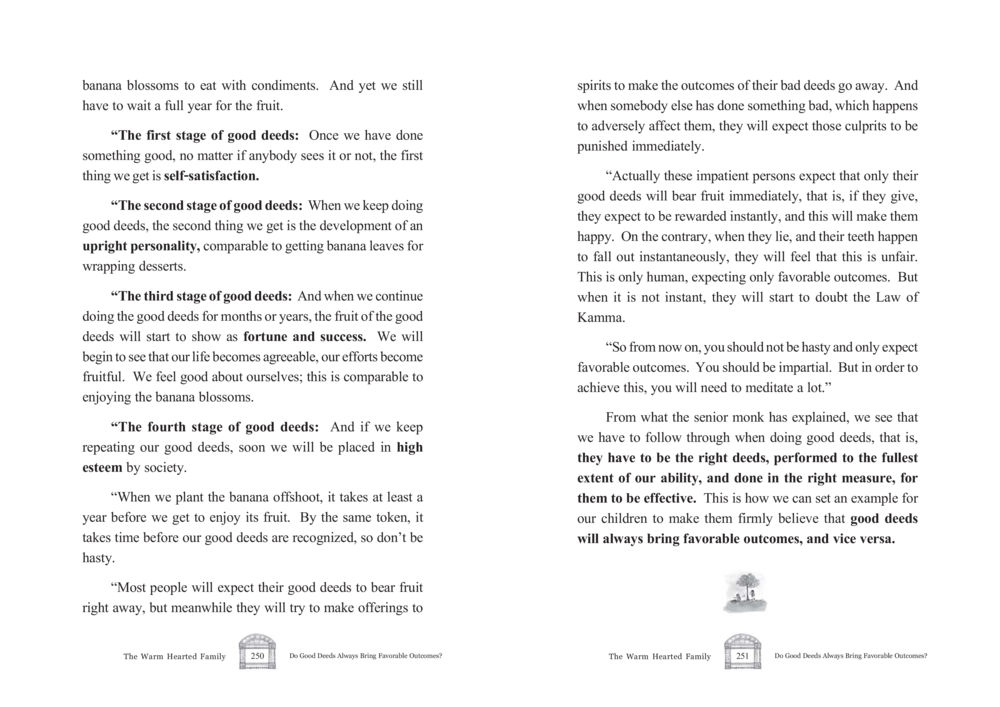The Stages of Good Deeds and Their Rewards : หน้า 126/207
The Warm Hearted Family : หน้า 126/207 Explore the transformative journey of good deeds, comparing them to the growth of banana plants, and understand the importance of patience in reaping their rewards.
0 ครั้ง

สรุปเนื้อหา
This text draws an analogy between the stages of good deeds and the growth of banana plants, highlighting four key stages: self-satisfaction, development of character, realization of fortune, and societal esteem. It emphasizes the need for patience, explaining that good deeds, like banana fruit, take time to manifest results. The text cautions against expecting instant rewards, urging individuals to remain impartial and to rely on meditation for maintaining a balanced perspective. The wisdom shared illustrates how steadfastness in performing good deeds can be a powerful example for future generations, reinforcing the belief that good actions lead to favorable outcomes. Emphasizing the patience required within the context of the Law of Kamma, the message serves as a guide for nurturing a fruitful and virtuous life.
หัวข้อประเด็น
-Stages of good deeds
-Human expectations
-The importance of patience
-Karma and its impact
-Meditation for balance
-Teaching future generations
ข้อความต้นฉบับในหน้า
หน้าหนังสือทั้งหมด















































































































































































































